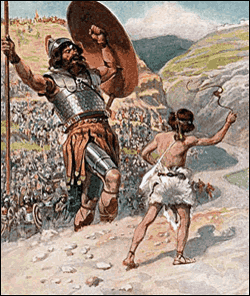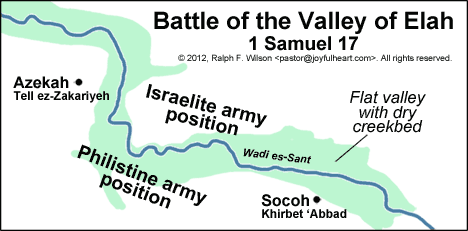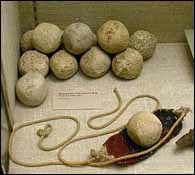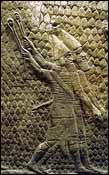Free E-Mail
Bible Studies
Beginning the Journey (for new Christians). en Español
Old Testament
Abraham
Jacob
Moses
Joshua
Gideon
David, Life of
Elijah
Psalms
Solomon
Songs of Ascent (Ps 120-135)
Isaiah
Advent/Messianic Scriptures
Daniel
Rebuild & Renew: Post-Exilic Books
Gospels
Christmas Incarnation
(Mt, Lk)
Sermon on the Mount
(Mt 5-7)
Mark
Luke's
Gospel
John's Gospel
7 Last Words of Christ
Parables
Jesus and the Kingdom
Resurrection
Apostle Peter
Acts
The Early Church
(Acts 1-12)
Apostle Paul
(Acts 12-28)
Paul's Epistles
Christ Powered Life (Rom 5-8)
1 Corinthians
2 Corinthians
Galatians
Ephesians
Vision for Church
(Eph)
Philippians
Colossians,
Philemon
1
& 2 Thessalonians
1 & 2 Timothy,
Titus
General Epistles
Hebrews
James
1 Peter
2 Peter, Jude
1, 2, and 3 John
Revelation
Revelation
Conquering Lamb of Revelation
Topical
Glorious Kingdom, The
Grace
Great Prayers
Holy Spirit, Disciple's Guide
Humility
Lamb of God
Listening for God's Voice
Lord's Supper
Names of God
Names of Jesus
Christian Art
About Us
Podcasts
Contact Us
Dr. Wilson's Books
Donations
Watercolors
Sitemap
|
|
The Valley of Elah (17:1-3)
But David didn't know this when it all began. All he knew was that his brothers were fighting the Philistines. The Philistines, a sea people that had settled along the coastal plain, had sent their combined armies inland to a city of Judah, Socoh, into the Valley of Elah, threatening the Israelite tribes in the hill country of Judah. Saul called up the army and took a position that would prevent the Philistines from moving further inland.
"1 Now the Philistines gathered their forces for war and assembled at Socoh in Judah. They pitched camp at Ephes Dammim,[47] between Socoh[48] and Azekah. 2 Saul and the Israelites assembled and camped in the Valley of Elah and drew up their battle line to meet the Philistines. 3 The Philistines occupied one hill and the Israelites another, with the valley between them." (17:1-3)
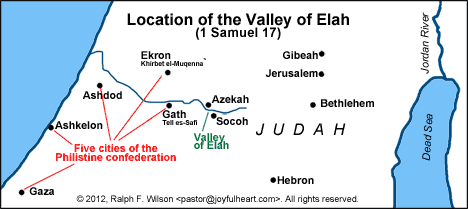 Location of the Valley of Elah. Larger map. |
The valley of Elah is a triangle-shaped flat valley, located on the western edge of the Judean low hills or Shepelah. Elah is named after the terebinth tree (Pistacia palaestina). Only in the rainy season does water flow in the creek bed, Wadi es-Sant, from the hills to the east to the Mediterranean on the west.
|
|
The coastal Philistines were constantly trying to encroach on Israelite territory in the Shepelah, the low hills to the east of their territory. The Valley of Elah was strategically important as a corridor from the coastal Philistine cities up to the center of the land of Judah and its cities such as Bethlehem and Hebron. The Israelites must hold this potential attack route in order to protect the rest of Judah.
But now the Israelite and Philistine armies are at a stalemate. The Israelites are encamped across the hills on the north side of the valley to prevent the Philistines from moving up the valley farther into Israelite territory. The Philistines are encamped across the hills on the south side of the valley. Only a dry creek bed separates the two armies.
Goliath, the Philistine Champion (17:4-11)
Neither army is moving from its position. But twice a day, the boredom is broken by a huge man of war who taunts the Israelites.
"4 A champion named Goliath, who was from Gath, came out of the Philistine camp. He was over nine feet tall. 5 He had a bronze helmet on his head and wore a coat of scale armor of bronze weighing five thousand shekels; 6 on his legs he wore bronze greaves, and a bronze javelin was slung on his back. 7 His spear shaft was like a weaver's rod, and its iron point weighed six hundred shekels. His shield bearer went ahead of him." (17:4-7)
The word translated "champion" is two words, literally, "man in between.[49]" The champion is "a man who steps out to fight between two battle lines" in single combat.[50] Goliath's challenge terrifies the Israelites.
"Choose a man and have him come down to me. If he is able to fight and kill me, we will become your subjects; but if I overcome him and kill him, you will become our subjects and serve us." (17:8b-9)
The boast is probably more psychological warfare than a genuine offer from the Philistine generals for single combat to settle the battle.
But whether real or not, this giant intimidates the Israelite soldiers, none of whom would have been much taller than five feet plus a few inches.
No Israelite could see himself beating this monster. He was huge -- "Over nine feet" literally "six cubits and a span"[51] -- about 9 feet, 9 inches. He was probably the descendant of a clan of giants that had previously been observed in the area, perhaps the Rephaim or Anakim.[52]
His state-of-the-art weapons were massive. He wore a helmet, scale armor,[53] and protection for his legs -- greaves. His spear was huge, and an assistant, the armor-bearer, carried his shield. The weapon slung on Goliath's back is more difficult to identify. The "javelin" (NIV, NRSV), "target" (KJV), kîdôn, is traditionally rendered, "dart, javelin."[54] More recently, based on the word's use in the War Scroll from Qumran, Molin has suggested that this is a scimitar, "a sword-like weapon for close action, with a handle, a straight piece, and a semi-circular blade, with a cutting edge on the outer side of the blade.[55] But the kîdôn seems to be differentiated from Goliath's sword (ḥereb) in 17:45.
David Supplies Food for His Brothers (17:12-24)
Our narrator is introducing the characters in the story. First, the protagonist: Goliath, then young David. David isn't in the army, but shepherding his father's sheep. However, he goes back and forth to make sure his brothers have food. The Israelite army is provisioned by family members supporting their own sons. David also relays news of his brothers to Jesse their father.
David Asks about Goliath's Defiance (17:25-30)
Just about the time David arrives, Goliath appears between the battle lines for one of his twice-daily taunts. David is appalled when he hears Goliath's rants, and asks some of the soldiers to tell him what's going on. It seems that King Saul has offered a huge reward to the warrior who slays Goliath, as well as marriage to the king's own daughter -- but there have been no takers. David asks:
"What will be done for the man who kills this Philistine and removes this disgrace from Israel? Who is this uncircumcised Philistine that he should defy the armies of the living God?" (17:26)
Soon, word gets around that there's a young man who isn't afraid of Goliath. When his oldest brother Eliab hears of it, he is furious:
"Why have you come down here? And with whom did you leave those few sheep in the desert? I know how conceited you are and how wicked your heart is; you came down only to watch the battle." (17:28)
David's answer sounds so authentic, so characteristic of family arguments:
"Now what have I done? Can't I even speak?" (17:29)
Eliab is embarrassed by David's naive comments because they reflect on his own lack of courage! But David isn't submitting to his brother's attempt to silence him. He asserts his right to speak his own opinion. Maybe he is the youngest, but he isn't afraid of his older brother!
Q1. (1 Samuel 17:26-30) Why is David so upset about
Goliath's taunt? Why is Eliab, David's brother, so upset with David? What does
this teach us about David's faith? What does it teach us about Eliab's
character?
https://www.joyfulheart.com/forums/index.php?showtopic=1160
Saul Sends for David (17:31-33)
But now Saul hears about this brash young man -- and is intrigued. He sends for him.
"32 David said to Saul, 'Let no one lose heart on account of this Philistine; your servant will go and fight him.'
33 Saul replied, 'You are not able to go out against this Philistine and fight him; you are only a boy, and he has been a fighting man from his youth.'" (17:32-33)
Saul, an accomplished warrior himself, tries to give David a reality check. But David doesn't accept it. As David explains his confidence, notice that this isn't just braggadocio, but faith in God.
"'34 Your servant has been keeping his father's sheep. When a lion or a bear came and carried off a sheep from the flock, 35 I went after it, struck it and rescued the sheep from its mouth. When it turned on me, I seized it by its hair, struck it and killed it.
36 Your servant has killed both the lion and the bear; this uncircumcised Philistine will be like one of them, because he has defied the armies of the living God. 37 The LORD who delivered me from the paw of the lion and the paw of the bear will deliver me from the hand of this Philistine.'
Saul said to David, 'Go, and the LORD be with you.'" (17:34-37)
Saul is convinced. Somehow, as David tells his story, a cinder of faith in Saul's heart springs to flame. He believes the boy!
A Combat-Tested Shepherd
Consider David's experience. He has been a "mere" shepherd, but he has done mortal combat with both lions and bears. He is fearless! When his flock is attacked, he doesn't take the easy way out. He chases after the predator, confronts it, kills it, and rescues the sheep from its jaws.
The Asiatic or Persian Lion (Felis leo persica) is now extinct in Palestine, the last sighting being in the 13th century AD. The only ones left in the wild are a few in the Gir Forest Sanctuary of northwestern India. But in biblical times they were abundant in Israel -- and dangerous! Males reach a weight of 350 to 420 pounds (160 to 190 kg); the females get to 240 to 260 pounds (110 to 120 kg).
The Syrian Brown Bear (Ursus arctos syriacus) is also extinct in Palestine, but is in the trans-Caucasian region of the former Soviet Union, and in Iran, Iraq, and Turkey. While the Syrian Brown Bear is one of the smaller subspecies of brown bears, it isn't small! Its head and body length is up to 8 feet (2.4 meters). Shoulder height is 35 to 43 inches (89-109 cm). Males weigh 220 to 660 pounds (100 to 300 kg), while females are about two-thirds the size of males.
King Saul is impressed. How many of his own soldiers would challenge a lion or bear? Few! So he gives David his blessing: "Go, and the LORD be with you" (17: 37b). David has inspired spiritual faith in the king. David has pointed him toward the power of Yahweh.
King Saul's Calculation
King Saul is convinced by David. But surely he is weighing the probabilities. At present, Goliath is demoralizing the Israelite troops. If this continues, they'll begin to desert in greater numbers. Something has to happen. If David is struck down by Goliath -- as is certainly likely -- the worst that would happen would be that the Philistines would wage an attack. Their psychological advantage is minor -- the victory of a giant over a boy.
Saul isn't staking the entire battle on David's success. Goliath's challenge of a contest between representatives is only a taunt, a boast. But if David wins -- and Saul believes that David has a chance of doing just that -- the psychological advantage over the Philistines will be huge. It will be a shock that might very well determine the outcome of the ensuing battle.
Q2. (1 Samuel 17:34-37) What does David's explanation to
Saul of his combat experience say about David's faith? How lethal is David as a
warrior? Why do you think Saul allows him to go out to battle Goliath? Does Saul
have faith? If so, what is the source of it?
https://www.joyfulheart.com/forums/index.php?showtopic=1161
David's Sling (17:38-39)
Saul proceeds to outfit David with his own armor. But since Saul stands head and shoulders above the average Israelite (10:23), his armor doesn't fit David. David tries it on, but can't move freely. He's not used to armor. This is the source of the saying, "trying to fight in someone else's armor." The armor would destroy David's chief advantage over the giant Philistine, his agility. Instead, David chooses his own weapons.
|
|
"[David] took his staff in his hand, chose five smooth stones from the stream, put them in the pouch of his shepherd's bag and, with his sling in his hand, approached the Philistine." (17:40)
The sling is an ancient weapon but very simple, and cheap enough for a shepherd boy to make and practice with while his sheep are grazing. David would have found a sling effective from a distance to deter animals that threatened his flock.
The sling is a projectile weapon, used to throw a blunt projectile with amazing speed. The length of the sling extends the leverage of the human arm, and the speed of the swing allows stones to be thrown at several times the force of throwing them by hand.
|
|
The sling probably goes back to the Neolithic peoples around the Mediterranean. But since slings are biodegradable, archaeologists don't often recover them. Slingers were utilized by armies with deadly effect. The oldest actual sling we've found comes from the tomb of Egyptian pharaoh Tutankhamen, who died about 1325 BC. But to find sling stones or bullets is rather common.
At the base of the city wall of Lachish in Judah, hundreds of sling stones have been recovered from a 701 BC siege by the Assyrian king Sennacherib. These are limestone, round, from 1-3/4 to 2-1/3 inches (4.5 to 6 cm) in diameter.[56] These aren't just pebbles, but vary from the size of a golf ball to a bit less than a tennis ball. Imagine being struck in the forehead with a stone the size of a golf ball or tennis ball slung at close range at a speed of 100 miles per hour!
The young warrior David doesn't take Saul's sword. Rather, he takes his shepherd's staff for close combat and his sling for longer range attack. On his way he stops at the stream-bed of Wadi es-Sant, to select five smooth sling-stones, which he deposits in the pouch at his waist.
David and Goliath Trade Boasts (17:41-47)
Goliath, however, is angry that they would send a mere lad against him -- without even any armor! It is an affront to his prowess as a warrior! He sees David's staff and bellows an insult -- "Am I a dog, that you come at me with sticks?" (17:43a). Insults ("trash talk") was common practice for soldiers trying to demoralize their opponents prior to close combat.
"The Philistine cursed David by his gods. 'Come here,'he said, 'and I'll give your flesh to the birds of the air and the beasts of the field!'" (17:43b-44)
But David is undeterred. The young boy calls out to the grizzled giant the defiant challenge of Yahweh. Goliath boasts in his own prowess, but David boasts in Yahweh Almighty! The giant's vision is to destroy the boy. But look at the boy's vision: to defeat the entire Philistine army and display to the whole world the glory of Yahweh.
"45 You come against me with sword and
spear and javelin, but I come against you in the name of the LORD Almighty, the
God of the armies of Israel, whom you have defied.
46 This day the LORD will hand you over to me, and I'll strike you
down and cut off your head. Today I will give the carcasses of the Philistine
army to the birds of the air and the beasts of the earth, and the whole world
will know that there is a God in Israel. 47 All those gathered here
will know that it is not by sword or spear that the LORD saves; for the battle
is the LORD's, and he will give all of you into our hands." (17:45-47)
"Name" (shēm) in verse 45 is used in a special sense, something like our power of attorney, where one person can act with the legal authority of another. To come "in the name of Yahweh Almighty," means to come with Yahweh's presence, power, authority, and divine appointment.[57] Goliath curses David by his (unnamed) gods, but David makes it clear that he is coming with Yahweh's power and authority. This is not just a military battle, it is a theological battle to demonstrate publicly Yahweh's superiority over other gods, that "the whole world will know that there is a God in Israel."
The Battle is the Lord's (17:45-47)
The spiritual heart of this lesson is found in verse 47:
"All those gathered here will know that it is not by sword or spear that the LORD saves; for the battle is the LORD's, and he will give all of you into our hands." (17:47)
So often we trust in our own strength. Or, just as bad, feel powerless and defeated because we don't have any strength. On this occasion, David articulates a basic principle of faith -- God will act on our behalf when we trust in him and are obedient to his voice. This same principle is reiterated time after time throughout scripture:
Jonathan: "Nothing can hinder the LORD from
saving,
whether by many or by few." (1 Samuel 14:6b)
To Jehoshaphat: "Do not be afraid or
discouraged because of this vast army.
For the battle is not yours, but God's." (2 Chronicles 20:15)
Hezekiah: "With him is only the arm of flesh,
but with us is the LORD our God to help us
and to fight our battles." (2 Chronicles 32:8)
"No king is saved by the size of his army;
no warrior escapes by his great strength.
A horse is a vain hope for deliverance;
despite all its great strength it cannot save.
But the eyes of the LORD are on those who fear him,
on those whose hope is in his unfailing love....
We wait in hope for the LORD;
he is our help and our shield." (Psalm 33:16-18, 20)
"I do not trust in my bow,
my sword does not bring me victory;
but you give us victory over our enemies,
you put our adversaries to shame.
In God we make our boast all day long,
and we will praise your name forever." (Psalm 44:6-8)
"There is no wisdom, no insight,
no plan that can succeed against the LORD.
The horse is made ready for the day of battle,
but victory rests with the LORD." (Proverbs 21:30-31)
"Yet I will show love to the house of Judah;
and I will save them
-- not by bow, sword or battle,
or by horses and horsemen,
but by the LORD their God." (Hosea 1:7)
"'Not by might nor by power,
but by my Spirit,'says the LORD Almighty." (Zechariah 4:6)
"If God is for us, who can be against us?
... No, in all these things we are more than conquerors
through him who loved us." (Romans 8:31, 37)
"You, dear children, are from God and have
overcome them,
because the one who is in you
is greater than the one who is in the world." (1 John 4:4)
Q3. (1 Samuel 17:47) Why do we so often forget that "the
battle is the Lord's"? What does that phrase actually mean? How can we avoid the
arrogance of pulling God into our battles ("God is on my side"), rather than
engaging in His battles ("I am on God's side")?
https://www.joyfulheart.com/forums/index.php?showtopic=1162
David's Deadly Sling (17:48-54)
The words have been said. Now it's time for action. Everything happens quickly at this point.
"48 As the Philistine moved closer to attack him, David ran quickly toward the battle line to meet him.
49 Reaching into his bag and taking out a stone, he slung it and struck the Philistine on the forehead. The stone sank into his forehead, and he fell face down on the ground. 50 So David triumphed over the Philistine with a sling and a stone; without a sword in his hand he struck down the Philistine and killed him.
51 David ran and stood over him. He took hold of the Philistine's sword and drew it from the scabbard. After he killed him, he cut off his head with the sword." (17:48-51a)
David keeps the sword and other weapons (17:54) -- to the victor goes the spoils. He later recovers the sword from the tabernacle at Nob when he is fleeing from Saul (21:9).
Goliath's death has a devastating effect on the Philistine army's morale. One moment they imagine the giant making quick work of the boy challenger. The next moment, their champion is lying on the ground and the boy is cutting off his head. The momentum has shifted in a moment. They flee for their lives!
Saul Inquires about David's Family (17:55-58)
Saul doesn't seem to know who either David or his father are and makes inquiries. We can imagine the next scene: David stands before Saul with Goliath's dripping head at his side:
"57 As soon as David returned from killing the Philistine, Abner took him and brought him before Saul, with David still holding the Philistine's head. 58 'Whose son are you, young man?'Saul asked him. David said, 'I am the son of your servant Jesse of Bethlehem.'" (17:57-58)
What's wrong here? Hasn't Saul met David earlier when he played the harp to quiet Saul's evil moods? Wasn't he an armor-bearer? (16:21) I think two things are going on.
- Sources. The historical books of the Bible were compiled from a number of independent sources into a single document that once extended from 1 Samuel through 2 Kings. From a stylistic viewpoint, the detailed story of David and Goliath is obviously a masterpiece of storytelling that was inserted in its entirety at this point. The editor doesn't try to harmonize each source with every other. You're seeing the "seams" that remained when 1 Samuel was put together.
- Relative importance. Though David is the center of our interest, when he is brought into to Saul's court he is merely a servant to be called when the king is in a bad mood. It's unlikely that Saul conversed with him; he is only a court musician, that's all. And being an armor-bearer for a king isn't like being the caddy for a pro golfer. All it means is that David is one of the carriers when the king decides to go somewhere. He is a minor court functionary. So it's not surprising that neither Saul nor Abner, Saul's general, remember his name or his family.
Disciple Lessons from David and Goliath
- Faith vs. fear. We need to be motivated primarily by our faith, not hindered from action by our fears.
- God's glory is more important than our own victory. David is concerned for God's reputation, not his own.
- The battle is the Lord's. So often we think we're alone in what we're facing. But if we're living for God, he is present no matter what is going on in our lives. And if the cause affects his kingdom and his glory, it is His battle, not ours at all.
- Importance of preparation. Even though we rely on the Spirit, we are not so foolish as to make no preparation. As St. Augustine once said, "Pray as though everything depended on God. Work as though everything depended on you." Faith and preparation are not mutually exclusive.
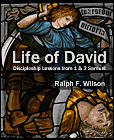 Available as a book in paperback, Kindle, and PDF formats. |
Prayer
Father, give us bold faith like the young David. So often we are motivated by our fears rather than by our faith. Forgive us for thinking so selfishly. Give us a broad vision for your purposes and your kingdom, and then make us warriors for you! In Jesus' name. Amen.
Key Verses
"Your servant has killed both the lion and the bear; this uncircumcised Philistine will be like one of them, because he has defied the armies of the living God. The LORD who delivered me from the paw of the lion and the paw of the bear will deliver me from the hand of this Philistine." (1 Samuel 17:36-37)
"You come against me with sword and spear and javelin, but I come against you in the name of the LORD Almighty, the God of the armies of Israel, whom you have defied." (1 Samuel 17:45)
"All those gathered here will know that it is not by sword or spear that the LORD saves; for the battle is the LORD's, and he will give all of you into our hands." (1 Samuel 17:47)
[47] The location of Ephes-Dammin isn't known with any certainty.
[48] Sucoh is identified with Khirbet Abbad, 14 miles west of Bethlehem. Two to three miles northwest was Azekah, Tell ez-Zakariyeh.
[49] Bēnayim is the dual form of bên, "between, among," here, "space between two armies" (BDB 108, 2).
[50] Roland De Vaux, The Bible and the Ancient Near East (Doubleday, 1971), pp. 124-125, cited by Tsumura, 1 Samuel, p. 440.
[51] A cubit is the distance from the elbow to the fingertips, usually figured at 18 inches. A span is the distance from thumb to little finger when one's hand is splayed open as far as possible, usually figured at about 9 inches.
[52] Deuteronomy 2:20-21; 2 Samuel 21:20-22; Numbers 13:22, 28; Joshua 15:13-14.
[53] "Scale armor" (NIV), "coat of mail" (NRSV, KJV) is qaśqeśet, "scale" of a fish, thus here of "scale armor," known in Egypt and Mesopotamia (Qaśqeśet, BDB 903).
[54] Kîdôn, BDB 475.
[55] "Tsumura, 1 Samuel, p. 443, who cites G. Molin, "What is a kidon?" JSS 1 (1956) 337; Klein, 1 Samuel, p. 176.
[56] The Israel Museum, Jerusalem, permanent collection.
[57] Gerald F. Hawthorne, "Name," ISBE 3:480-483.
Copyright © 2025, Ralph F. Wilson. <pastor![]() joyfulheart.com> All rights reserved. A single copy of this article is free. Do not put this on a website. See legal, copyright, and reprint information.
joyfulheart.com> All rights reserved. A single copy of this article is free. Do not put this on a website. See legal, copyright, and reprint information.
 |

|
In-depth Bible study books
You can purchase one of Dr. Wilson's complete Bible studies in PDF, Kindle, or paperback format -- currently 48 books in the JesusWalk Bible Study Series.
Old Testament
- Abraham, Faith of
- Jacob, Life of
- Moses the Reluctant Leader
- Joshua
- Gideon
- David, Life of
- Elijah
- Psalms
- Solomon
- Songs of Ascent (Psalms 120-134)
- Isaiah
- 28 Advent Scriptures (Messianic)
- Daniel
- Rebuild & Renew: Post-Exilic Books
Gospels
- Christmas Incarnation (Mt, Lk)
- Sermon on the Mount (Mt 5-7)
- Luke's Gospel
- John's Gospel
- Seven Last Words of Christ
- Parables
- Jesus and the Kingdom of God
- Resurrection and Easter Faith
- Apostle Peter
Acts
Pauline Epistles
- Romans 5-8 (Christ-Powered Life)
- 1 Corinthians
- 2 Corinthians
- Galatians
- Ephesians
- Philippians
- Colossians, Philemon
- 1 & 2 Thessalonians
- 1 &2 Timothy, Titus
General Epistles
Revelation
Topical

